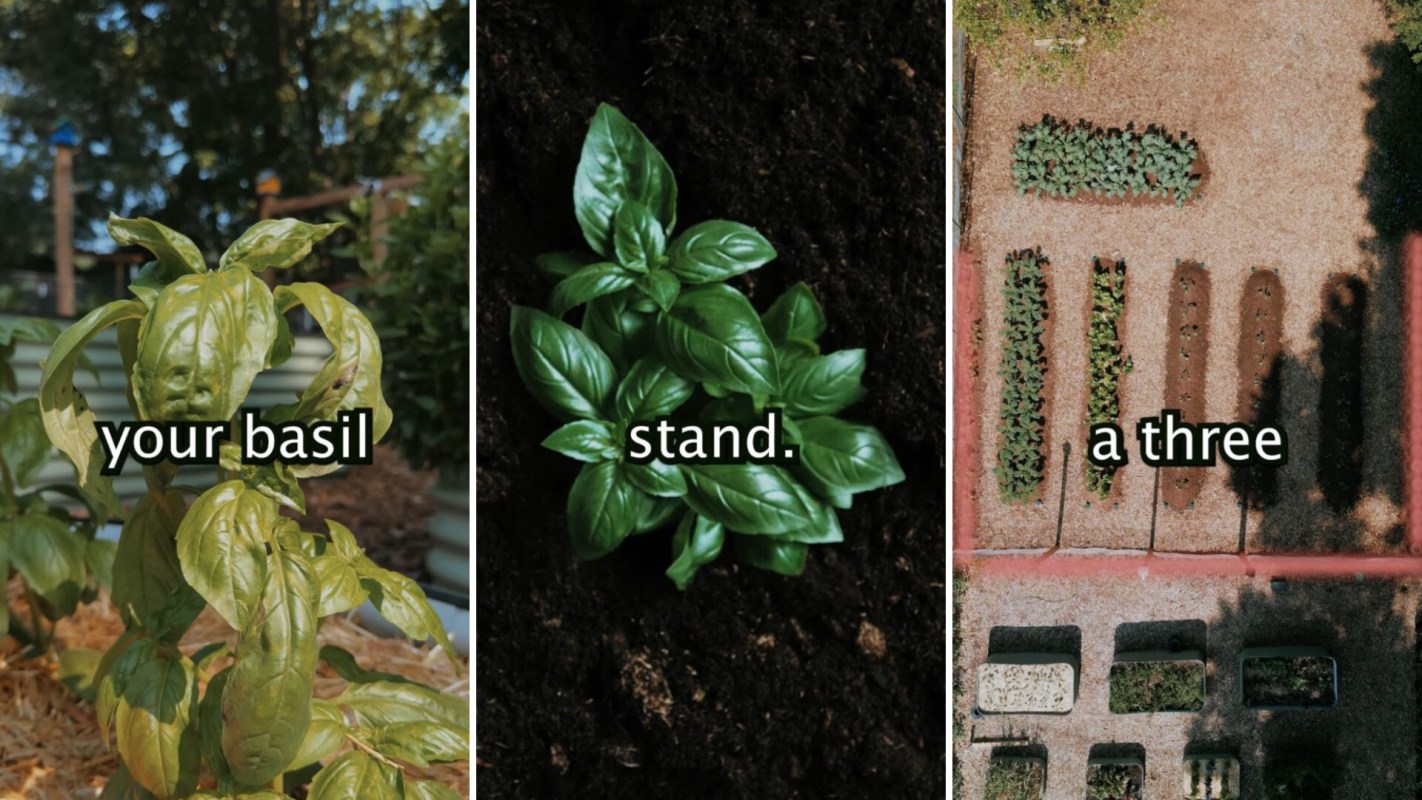Bugs love to snack on your garden, so if you want to eat those veggies yourself, you need a way to protect them without covering them in pesticide — and one Instagrammer shares the simple but brilliant answer in a recent video.
The scoop
The video was posted by Acorn Land Labs (@acorn_land_labs), where STEM education company Live Oak tests all of its efficient and natural solutions for providing water, food, and other human needs. The company teaches students to be self-sufficient and eco-friendly, which means natural pest control is high on the priority list.
In the video, a representative of Acorn Land Labs shows off a planter full of basil.
"Whereas most people just grow basil to consume it, we use it for heavy defense," he says.
According to the video, basil's characteristic odor is unpleasant for many of the common garden pests that eat other plants. Not only will most bugs stay off the basil itself, but they'll also even avoid the whole area around it.
As Acorn Land Labs puts it, "Always strategically place your basil."
The representative also outlines two ways to do that. For smaller gardens, he recommends simply putting basil at the center of the space.
"By placing basil in the center of our raised bed area, the basil odor creates a defense barrier against many bugs," he adds.
In larger gardens, that won't cover the space, so gardeners can use basil to form a wall around the garden instead. The video shows a larger field with a row of potted basil plants surrounding it on three sides. Acorn Land Labs calls this "a three-angled defense for the plants."
How it's helping
Basil's natural pest control ability has several advantages. For one thing, it's passive, as you don't need to mix, spray, and reapply treatments as you would with a pesticide. For another, you can eat the basil, which is a star ingredient in many cuisines, including Italian, Thai, Indonesian, and Vietnamese food.
But the biggest benefit is the one Acorn Land Labs' representative outlines in his short video.
"By using basil, we eliminate the need for pesticides and other harmful chemicals," he says.
Spraying those chemicals on plants you intend to eat is inconvenient at best since you'll have to wash them thoroughly before using them. At worst, pesticides are dangerous to people and wildlife alike, so eliminating them is key to healthy, eco-friendly gardening.
What everyone's saying
"There are a ton of other bug-deterring plants to add to that defense wall," one commenter said.
But, as the commenter pointed out, there are also some situations where you actually want bugs in your garden.
"Just don't mix it with pollinator plants," they added.
Another user was impressed with Acorn Land Labs' extensive gardens.
"Bro is prepared for the zombies," they said.
Join our free newsletter for easy tips to save more, waste less, and help yourself while helping the planet.









